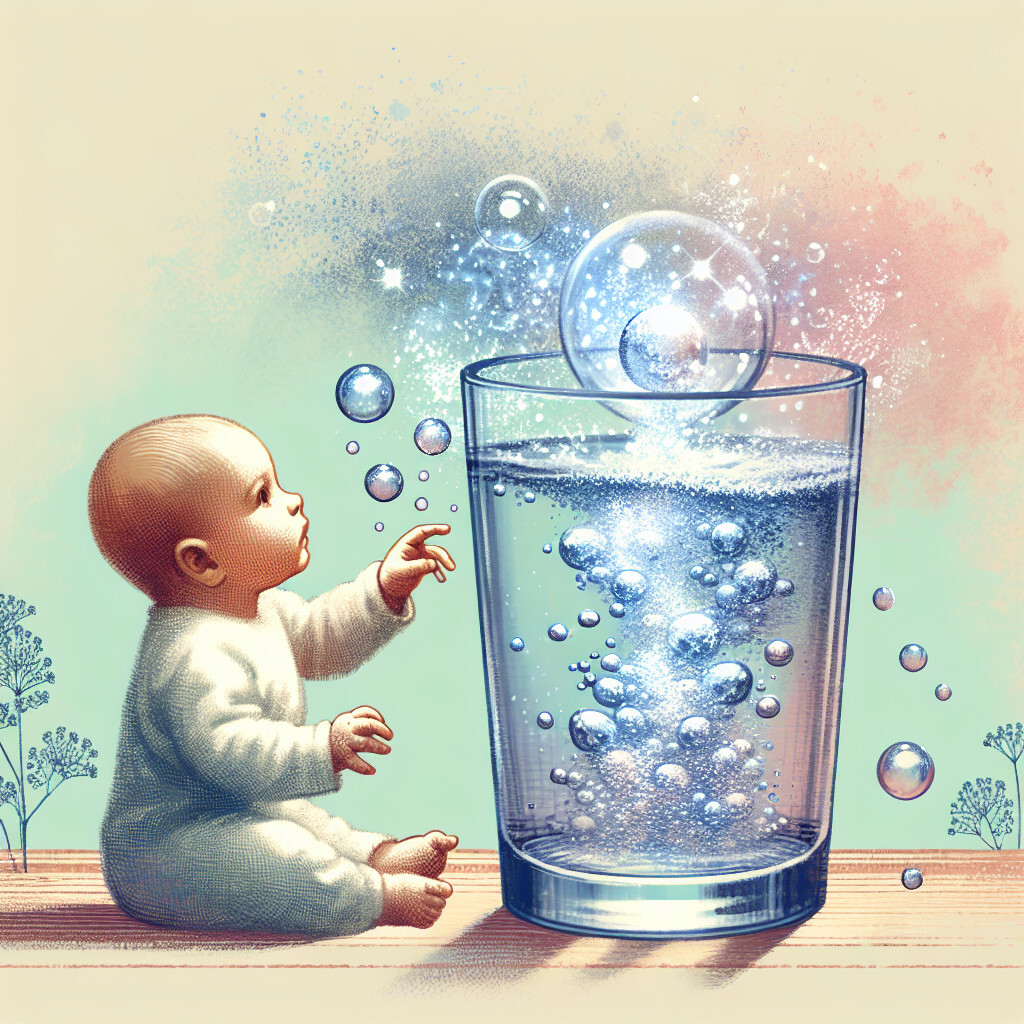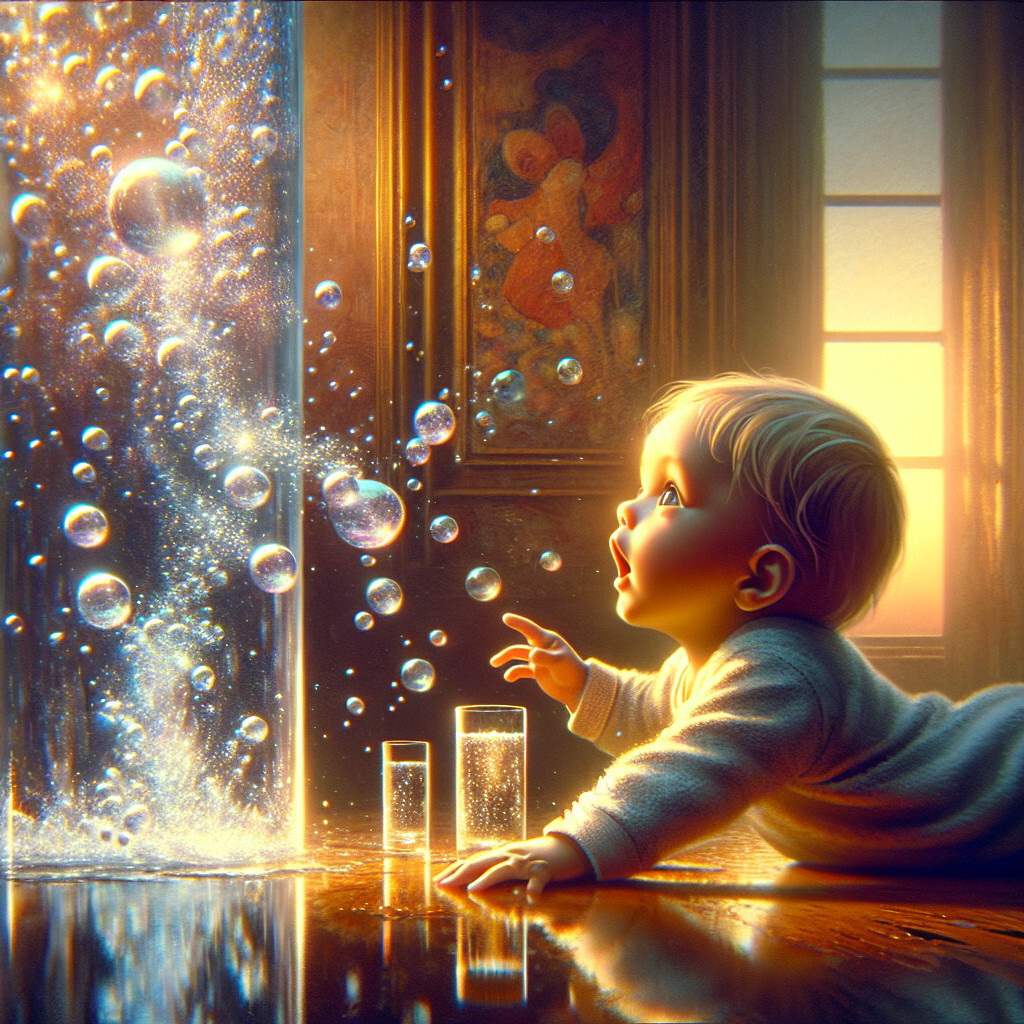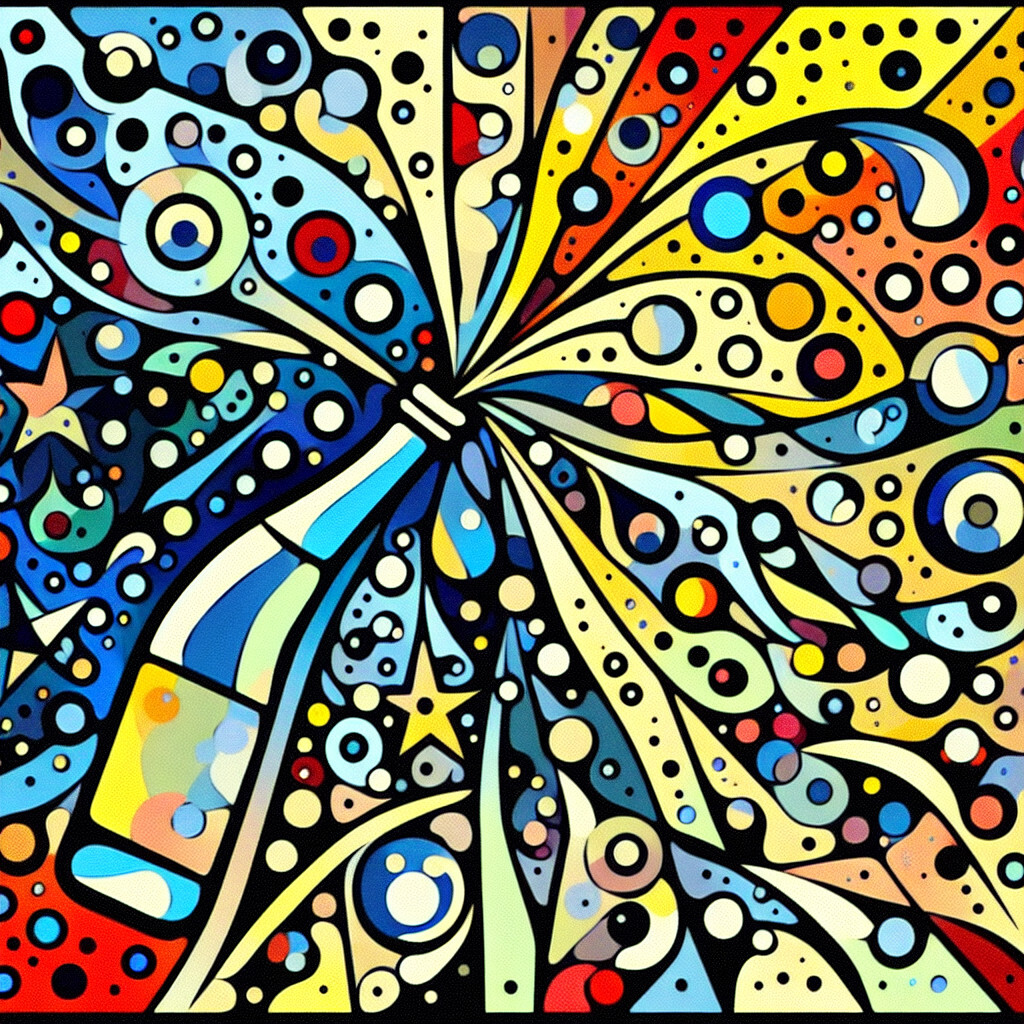-
Table of Contents
“Sparkling Hydration: Not Recommended for Babies!”
Introduction

Sparkling water, also known as carbonated water, is a popular beverage among adults. However, when it comes to babies, it’s a different story. Babies have a delicate digestive system that may not handle the bubbles and acidity found in sparkling water well. It can cause discomfort, such as bloating and indigestion. Therefore, it’s generally recommended to stick to breast milk or formula for babies under six months and introduce plain water after six months of age.
Understanding the Effects of Sparkling Water on Babies
As parents, we are constantly seeking to provide the best for our children, especially when it comes to their nutrition and hydration. One question that often arises is whether babies can drink sparkling water. While sparkling water is a popular beverage choice among adults, it may not be suitable for infants. This article aims to shed light on the effects of sparkling water on babies and provide a comprehensive understanding of its potential impacts.
Sparkling water, also known as carbonated water, is water into which carbon dioxide gas under pressure has been dissolved. This process gives the water its characteristic bubbles and fizz. While it may seem like a harmless and refreshing alternative to still water, it’s important to consider the potential effects on a baby’s delicate system.
Firstly, the carbonation in sparkling water can cause gas and bloating in babies. Their digestive systems are still developing and are not equipped to handle the bubbles that come with carbonated beverages. This can lead to discomfort, bloating, and even colic in some cases. Therefore, it’s advisable to stick to still water when hydrating your baby.
Secondly, sparkling water is often more acidic than regular water due to the carbonation process. This acidity can potentially harm a baby’s teeth and developing enamel. Even though baby teeth are temporary, damage to them can have long-term effects on the permanent teeth waiting to emerge. Hence, it’s crucial to protect these primary teeth from any potential harm, including the acidity from sparkling water.
Moreover, some types of sparkling water contain added sugars and flavors, which are not recommended for babies. These additives can contribute to unhealthy weight gain and tooth decay. Even if the sparkling water is labeled as ‘natural’ or ‘unsweetened,’ it’s still best to avoid it due to the reasons mentioned above.
It’s also worth noting that while sparkling water is not harmful to adults, it doesn’t offer any additional health benefits compared to regular water. The primary role of water in a baby’s diet is to keep them hydrated, especially once they start eating solid foods. Regular, still water perfectly fulfills this role without any potential side effects.
In conclusion, while sparkling water may be a refreshing beverage for adults, it’s not recommended for babies. The carbonation can cause digestive discomfort, the acidity can harm their developing teeth, and any added sugars or flavors can lead to other health issues. As a general rule, it’s best to stick to breast milk or formula for babies under six months. For older babies who have started on solids, small amounts of regular water can be introduced. Always consult with a pediatrician if you have any doubts or questions about your baby’s hydration. Remember, when it comes to your baby’s health, it’s always better to err on the side of caution.
Can Sparkling Water Be Included in Your Baby’s Diet?
As parents, we are always concerned about the health and well-being of our children, especially when it comes to their diet. One question that often arises is whether it is safe for babies to drink sparkling water. This question is particularly relevant in today’s world, where sparkling water has become a popular alternative to sugary drinks. However, before introducing any new food or drink into your baby’s diet, it is essential to understand its potential effects on their health.
Sparkling water, also known as carbonated water, is simply water into which carbon dioxide gas has been dissolved under pressure. This process gives the water its characteristic bubbles and fizzy sensation. While it is generally considered safe for adults and older children, the situation is different when it comes to babies.
The primary concern with giving sparkling water to babies is the potential for gas and bloating. The carbonation in sparkling water can lead to a build-up of gas in the stomach, which can cause discomfort and bloating. Babies have immature digestive systems that are still developing, making them more susceptible to these effects. Moreover, excessive gas can lead to colic, a condition characterized by severe, often fluctuating pain in the abdomen, caused by the formation or passage of gases.
Another concern is the potential for choking. The bubbles in sparkling water can cause a surprising sensation that might lead to choking in babies. This is especially true for younger babies who are still learning how to swallow properly. Therefore, it is advisable to wait until your child is older and has mastered the art of swallowing before introducing them to sparkling water.
Additionally, while sparkling water is typically free of sugars and artificial sweeteners, some varieties do contain added flavors or sweeteners. These can contribute to tooth decay, especially in babies whose teeth are still developing. Therefore, if you do decide to give your baby sparkling water, it is crucial to choose a variety that is free of these additives.
It is also worth noting that water, in general, should not replace breast milk or formula in your baby’s diet. These are the primary sources of nutrition for babies, and water should only be introduced as a supplement after six months of age. Even then, it should be given in moderation to avoid filling up your baby’s small stomach and displacing more nutritious foods.
In conclusion, while sparkling water is not inherently harmful, it is not the best choice for babies due to the potential for gas, bloating, and choking. If you wish to introduce your baby to water, it is recommended to stick with still water, preferably boiled and cooled, until they are older. As always, if you have any concerns about your baby’s diet, it is best to consult with a healthcare professional. They can provide personalized advice based on your baby’s age, health status, and nutritional needs. Remember, every baby is unique, and what works for one may not necessarily work for another.
The Pros and Cons of Giving Sparkling Water to Babies
The question of whether babies can drink sparkling water is one that has been asked by many parents. This is a topic that requires careful consideration, as the health and well-being of a child is of paramount importance. This article aims to provide an informative and formal discussion on the pros and cons of giving sparkling water to babies.
Sparkling water, also known as carbonated water, is a popular beverage choice among adults. It is essentially water into which carbon dioxide gas has been dissolved under pressure, resulting in a fizzy drink. While it may seem like a harmless and refreshing alternative to still water, it may not be the best choice for babies.
On the positive side, sparkling water is free of sugars and artificial sweeteners, making it a healthier option compared to sugary drinks or juices. It is also hydrating, just like regular water. However, these benefits are more applicable to adults and older children who have a more developed digestive system.
On the downside, the carbonation in sparkling water can cause a variety of issues in babies. The bubbles that make sparkling water fizzy can lead to bloating and gas, which can be uncomfortable for a baby’s immature digestive system. This can result in increased fussiness, burping, and even exacerbate colic symptoms in some infants.
Moreover, the acidity in sparkling water is higher than in regular water due to the carbonation process. This can potentially harm a baby’s developing teeth and delicate oral tissues. While the risk is relatively low, especially if the baby’s teeth are regularly cleaned, it is still a factor to consider.
Another point to consider is that while sparkling water is hydrating, it does not offer the same level of hydration as regular water. This is because the carbonation can make a person feel full faster, potentially leading to decreased fluid intake. For babies, who have smaller stomachs and need regular hydration, this could be problematic.
Furthermore, introducing sparkling water at a young age could potentially set up a preference for fizzy drinks. This could lead to a higher consumption of unhealthy carbonated beverages in the future, which are often high in sugar and can contribute to obesity and other health problems.
In conclusion, while sparkling water is not inherently harmful, it may not be the best choice for babies due to potential digestive discomfort, dental concerns, and hydration issues. It is always recommended to consult with a pediatrician or a healthcare provider before introducing any new foods or beverages to a baby’s diet. The general consensus among health professionals is that plain, uncarbonated water is the safest and most beneficial choice for hydration in babies. However, as with all aspects of parenting, individual circumstances and the baby’s health and preferences should always be taken into account.
Debunking Myths: Is Sparkling Water Safe for Babies?
The question of whether babies can drink sparkling water is one that has been asked by many parents, especially those who are health-conscious and are looking for alternatives to sugary drinks for their little ones. This article aims to debunk myths and provide clarity on the subject, based on scientific evidence and expert opinions.
Sparkling water, also known as carbonated water, is a popular beverage choice among adults due to its refreshing taste and the fact that it is calorie-free. It is made by dissolving carbon dioxide gas under pressure, which creates the characteristic bubbles and fizz. However, when it comes to babies, the suitability of sparkling water as a beverage option is a topic of debate.
Firstly, it is important to understand that babies have a different digestive system compared to adults. Their stomachs are smaller and their digestive systems are still developing. This means that they may not be able to handle the carbonation in sparkling water as well as adults can. The bubbles in sparkling water can cause gas and bloating, which can lead to discomfort and fussiness in babies. In some cases, it can even lead to colic, a condition characterized by severe, often fluctuating pain in the abdomen that is caused by the formation or passage of gas.
Secondly, sparkling water is often high in sodium, which is not suitable for babies. Babies need only a very small amount of sodium in their diet, and too much can be harmful to their kidneys, which are not fully developed and therefore cannot process large amounts of sodium efficiently.
Moreover, while sparkling water is a healthier alternative to sugary drinks for adults, it is not necessarily the case for babies. Babies need a diet that is rich in nutrients to support their growth and development, and sparkling water does not provide any nutritional value. In fact, it can fill up their small stomachs, leaving less room for nutrient-dense foods and breast milk or formula, which are essential for their growth and development.
It is also worth noting that the acidity in sparkling water can harm babies’ teeth. Even though sparkling water is sugar-free, it is still acidic due to the carbonation process. This acidity can erode the enamel on babies’ teeth, leading to dental problems in the future.
In conclusion, while sparkling water may seem like a harmless and refreshing beverage for adults, it is not recommended for babies. The carbonation can cause digestive issues, the high sodium content can be harmful to their kidneys, and the lack of nutritional value can interfere with their growth and development. Furthermore, the acidity can harm their teeth. Therefore, the best drink for babies is still breast milk or formula for those under one year of age, and plain water for those older. As always, if you have any concerns or questions about your baby’s diet, it is best to consult with a pediatrician or a registered dietitian.
Q&A
1. Question: Can babies drink sparkling water?
Answer: No, it’s not recommended for babies to drink sparkling water due to its acidity and carbonation which can upset their sensitive digestive systems.
2. Question: What age can a child start drinking sparkling water?
Answer: It’s generally safe for children to start drinking sparkling water around the age of 2, but it’s always best to consult with a pediatrician first.
3. Question: Why is sparkling water not suitable for babies?
Answer: Sparkling water is not suitable for babies because it contains carbonation and acids that can upset a baby’s stomach and potentially harm their developing teeth.
4. Question: Can sparkling water replace regular water in a baby’s diet?
Answer: No, sparkling water should not replace regular water in a baby’s diet. Babies need plain water for hydration, and too much sparkling water can lead to bloating and indigestion.
Conclusion
In conclusion, it is not recommended for babies to drink sparkling water due to its acidity and carbonation which can cause stomach discomfort and harm developing teeth.





